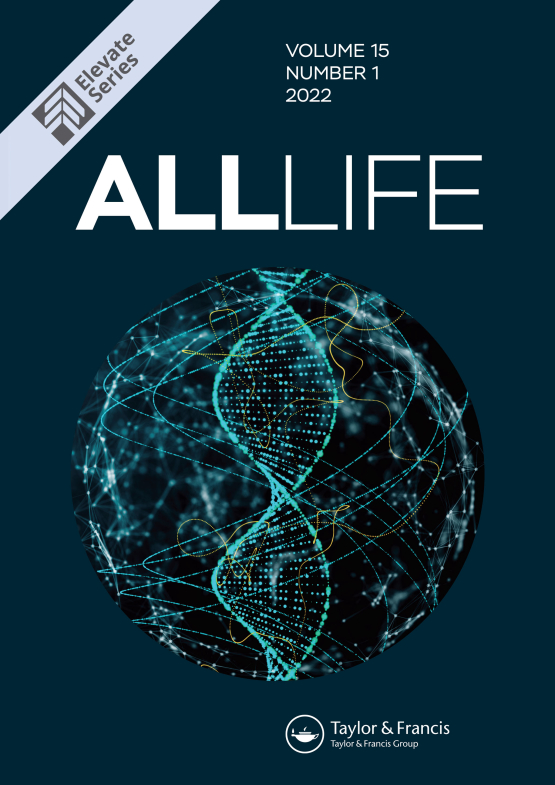Submit a Manuscript to the Journal
All Life
For an Article Collection on
Targeting UN Sustainable Development Goal 2: Zero Hunger
Manuscript deadline
28 February 2025


Article collection guest advisor(s)
Prof. Amar Abderrahmani,
Lille University-Faculty of Medicine
[email protected]
Targeting UN Sustainable Development Goal 2: Zero Hunger
In 2015, the United Nations adopted the 2030 Agenda for Sustainable Development, which is comprised of 17 Sustainable Development Goals (SDGs). These SDGs are a call to action aimed at preserving the livelihood of Planet Earth and every organism that inhabits it by addressing various issues including, but not limited to, hunger, poverty, disease, pollution, and climate change. The only way to achieve these goals is for all countries to participate through collaborative efforts, and this is where open scientific research plays a pivotal role. One such goal, SDG2, focuses on ending world hunger.
By the year 2030, it is estimated that more than 600 million individuals will face hunger. Worldwide, malnutrition due to food insecurity persists in children under the age of 5 resulting in such devastating health consequences as stunted growth, muscle wasting, and obesity. In fact, currently one in three individuals across the globe struggle with moderate to severe food insecurity. In areas that do have greater food supply, the ever-increasing cost of food has placed a hinderance on access to nutritional food options. The goal for SDG2 is that no individual goes hungry, and it is at high risk.
In this Article Collection, All Life addresses SDG2: Zero Hunger through innovative open scientific research that can be used to further create, increase, and/or improve sustainable food production. The Collection welcomes studies that investigate resilient and healthy agricultural practices enabling to increase productivity and production, to help maintain ecosystems, to strengthen capacity for adaptation to climate change via accessible crops, livestock, and farmland to combat hunger.
This Article Collection will accept original research articles, reviews, short communications, data notes, and commentaries on topics including, but not limited to:
- Agronomy for better care of crops
- Novel approaches aiming to maximum yield with biodegradable products while minimizing off-target effects on sensitive organisms.
- New sustainable nutrients engineering and formulation
- Soil nutrient utilization by crops and sustainable fertilization systems
- Approaches to livestock breeding
- Land use modelling
- Cellular agriculture
- Husbandry science, including infectious pathogens threatening crops and livestock
- Plant breeding genetics
All manuscripts submitted to this Article Collection will undergo a full peer-review; the Guest Advisor for this Collection will not be handling the manuscripts (unless they are an Editorial Board member).
Please review the journal scope and author submission instructions prior to submitting a manuscript.
The deadline for submitting manuscripts is 28 February 2025.
Please contact Ashley Ambros at [email protected] with any queries and discount codes regarding this Article Collection.
Please be sure to select the appropriate Article Collection from the drop-down menu in the submission system, and please select Agriculture from the list of available sections during submission. Failure to select the appropriate Article Collection or Section name can result in delays.
Dr. Amar ABDERRAHMANI is Full Professor of Cell and Molecular Biology at the Faculty of Medicine at Lille University. He is currently the head of the team devoted to nanomaterials for health in the institute of electronics, microelectronics, and nanotechnologies. He has a multidisciplinary background including a PhD and pharmacy graduation in Molecular genetics and pharmaceutical chemistry. AA has been honoured by several Swiss awards and in 2011, of National Chair of Excellence in beta-cell biology, bioscience and diabetes. AA has been member of several scientific committees of Diabetes Association. Prof. Abderrahmani declares no conflict of interest regarding this work.
Benefits of publishing open access within Taylor & Francis
Global marketing and publicity, ensuring your research reaches the people you want it to.
Article Collections bring together the latest research on hot topics from influential researchers across the globe.
Rigorous peer review for every open access article.
Rapid online publication allowing you to share your work quickly.
Looking to Publish your Research?
Find out how to publish your research open access with Taylor & Francis Group.
Choose open accessSubmission Instructions
All manuscripts submitted to this Article Collection will undergo desk assessment and peer-review as part of our standard editorial process. Guest Advisors for this collection will not be involved in peer-reviewing manuscripts unless they are an existing member of the Editorial Board. Please review the journal Aims and Scope and author submission instructions prior to submitting a manuscript.